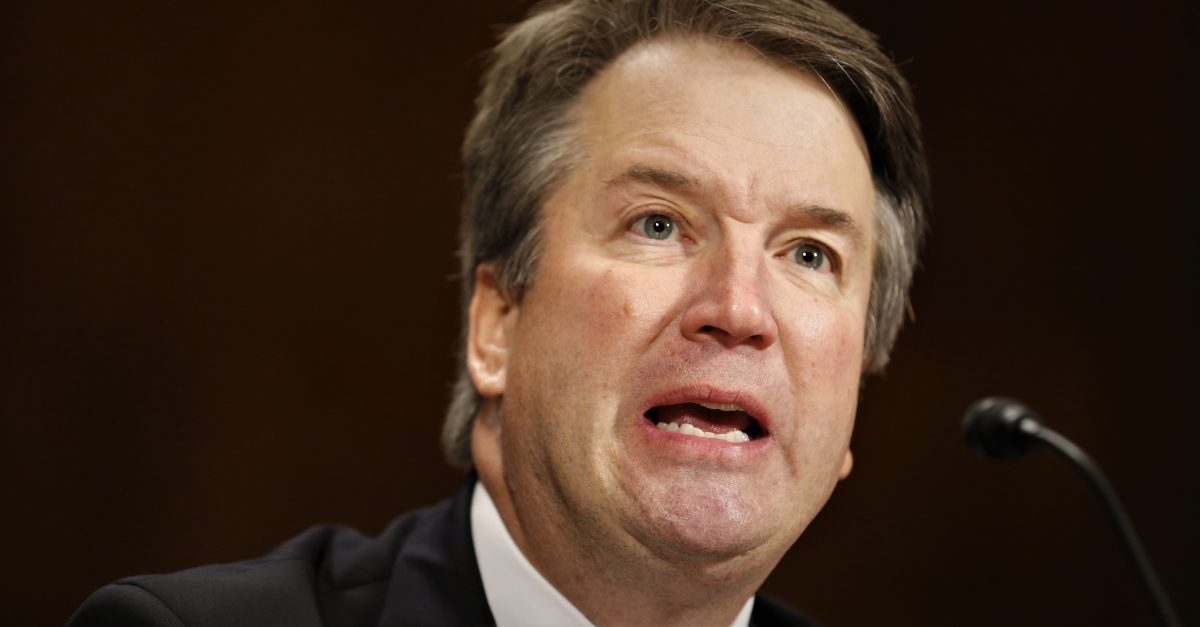
Late Thursday night, the Supreme Court decided June Medical Services, LLC v. Gee. The case presented the question of whether to stay enforcement of Louisiana’s 2014 “Unsafe Abortion Protection Act.” The statute, which requires doctors performing abortions to have admitting privileges at a hospital within 30 miles of their clinic, is essentially identical to a Texas law struck down as unconstitutional in the 2016 Whole Woman’s Health v. Hellerstedt. The Court’s majority voted to stay enforcement of Louisiana’s law pending anticipated further litigation.
While Thursday’s decision may ultimately amount to merely a temporary delay, the Court’s decision at this point should have been a no-brainer. Planned Parenthood v. Casey prohibits abortion regulations that place any “undue burden” on women. Whole Woman’s Health v. Hellerstedt made it clear that hospital-privilege requirements are just the kind of “undue burden” that Casey forbids. And yet, somehow, Justice Kavanaugh found three pages of reasons why Louisiana doesn’t really have to follow the law of the land.
In a profound display of missing the point, Kavanaugh wrote at length about how the effect of the Louisiana statute might not really be as bad as it’s cracked up to be. Maybe the four abortion docs in the state could just get admitting privileges and the whole thing would be NBD for women seeking abortions. And if it does become a problem, then everyone could just come back to court and SCOTUS will sort the whole thing out. If this is a display of Kavanaugh’s Solomonic wisdom, I’d honestly hate to see how he resolves disputes on those sports teams he’s so fond of coaching.
I get that abortion is a sensitive and complex topic. In fact, it’s so complex that the typically-conservative Chief Justice John Roberts voted with the more liberal justices against the Louisiana statute. That vote, though, likely had nothing to do with abortion and everything to do with Justice Roberts understanding his job.
Our legal system has rules, and one of those rules is that courts follow precedent even when they disagree with that precedent. There are opportunities for precedents to be overturned, but until that’s done, the rules are the rules. Often, litigants and judges can get around pesky precedents by distinguishing the facts of a new case from an older precedent; that’s the art of practicing law. Rare is the case that presents a statute identical to one that’s already been ruled unconstitutional. But June Medical Services, LLC v. Gee was just that rare case. It presented a statute that we all knew was unconstitutional, and asked SCOTUS to rule in favor of the law simply because lots of people really, really oppose abortion. The case was like the appellate version of JoAnne Galloway’s “strenuous objection.”
Kavanaugh took the bait, abandoned his post as guardian of precedent, and started an under-the-radar attack on reproductive freedom without even admitting to doing so.
In truth, Kavanaugh’s dissent proves nothing so much as his inability to be patient. The man wants what he wants, and is unwilling to wait for the opportunity to become appropriately ripe. Kind of rings a bell or two, doesn’t it? Luckily at least five other justices understand their obligation to approach sensitive cases with the kind of detached reserve befitting our nation’s highest bench.